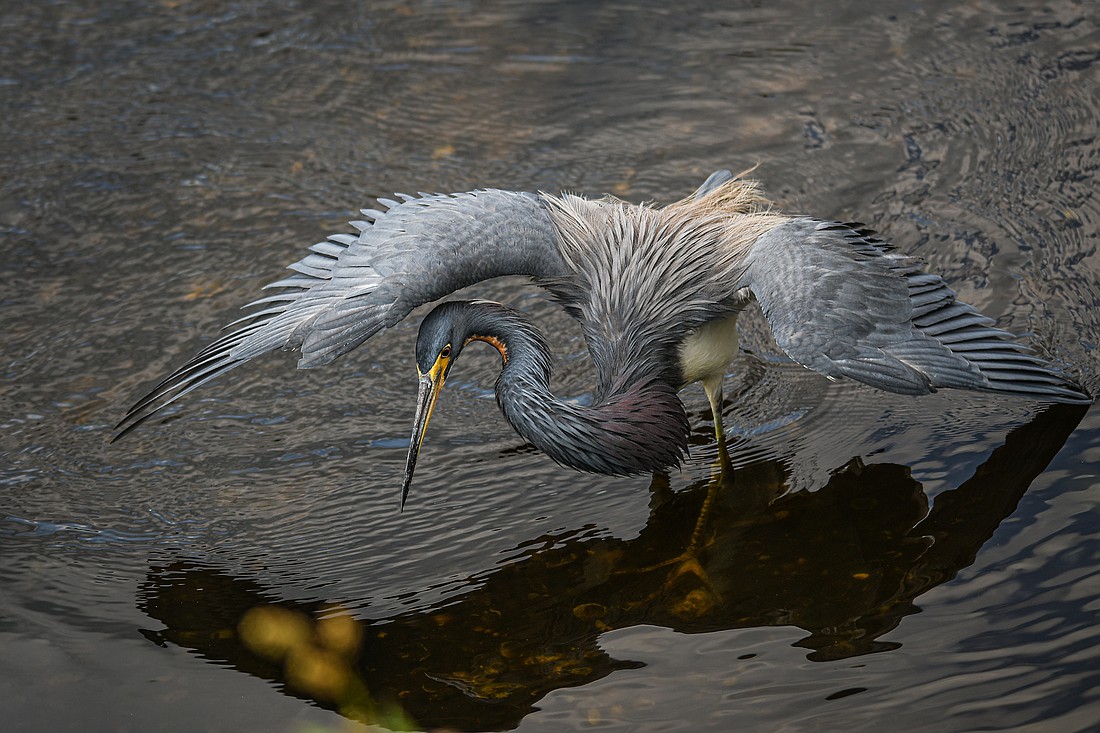- January 28, 2026
-
-
Loading

Loading

A vision in slate-blue, rusty-purple and white, the tricolored heron is a mid-sized wading bird that mostly eats fish. Previously called the Louisiana heron, it is the only dark heron with light underparts.
Tricolored herons hunt during the day, mainly depending on their keen vision.
Included in their wide range of foraging styles is an eye-catching technique known as “canopy feeding.” While prancing through the shallows in quest of a meal, they gracefully raise their wings over their tucked-down heads. It is suggested that they do this to entice fish to enter the shade provided by their wings or possibly because shading the water's surface reduces reflections, and therefore allows them to better see their prey.
Whatever the reason, it is a mesmerizing dance to behold.
Tricolored herons numbers were not drastically reduced in the early 1900s, as they were not hunted for their plumes. However, as their numbers are declining across Florida, they are now a state-threatened species
This is mostly due to the continued development of our wetlands, where they have historically fed and bred. And, like other birds inhabiting our estuaries, they are threatened by exposure to pollutants and pesticides. Tricolored heron are especially sensitive to high mercury levels in the fish they eat, which causes their egg shells to be very thin.
We can help protect these beautiful birds by conserving their existing habitats from further development and by keeping our distance from mangrove bird colonies when boating, to reduce disturbance. And we can protect our estuaries by disposing household and yard chemicals properly and not pouring toxic waste, chemicals or any medications down toilets or drains.
Save our Seabirds is a non-profit organization whose mission is to rescue and rehabilitate sick and injured birds, releasing as many as they can, while educating our community about avoiding injuries and preserving habitats.